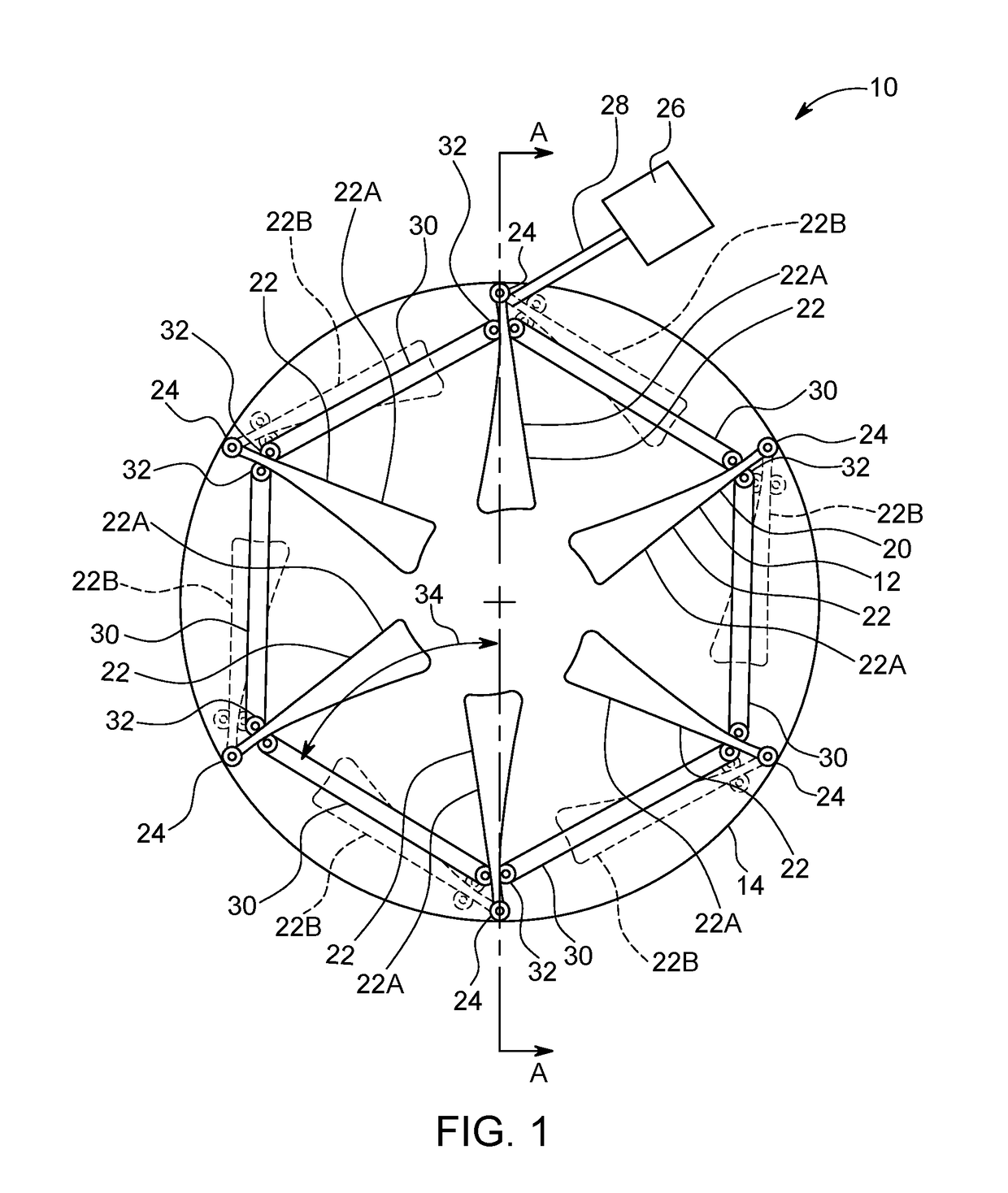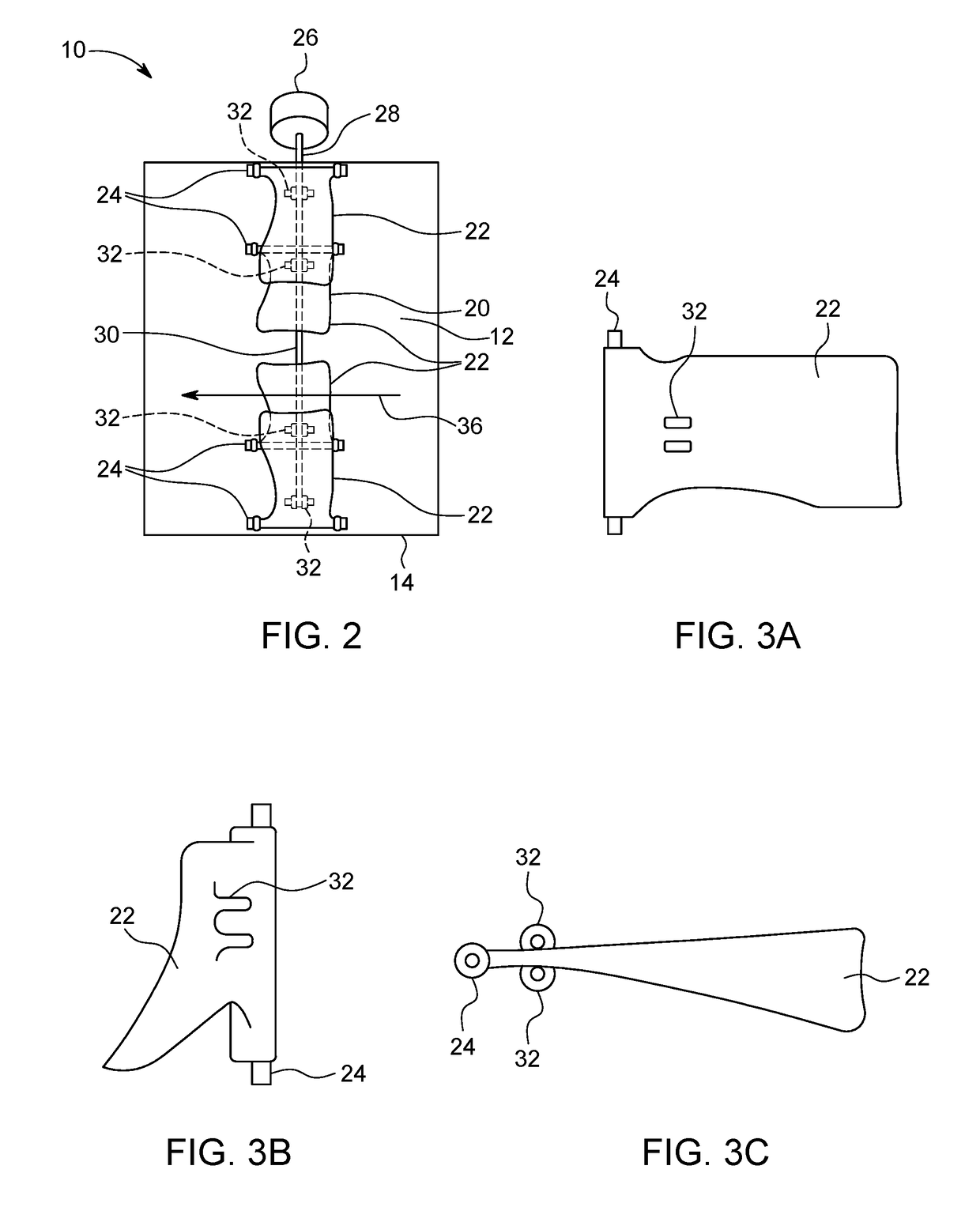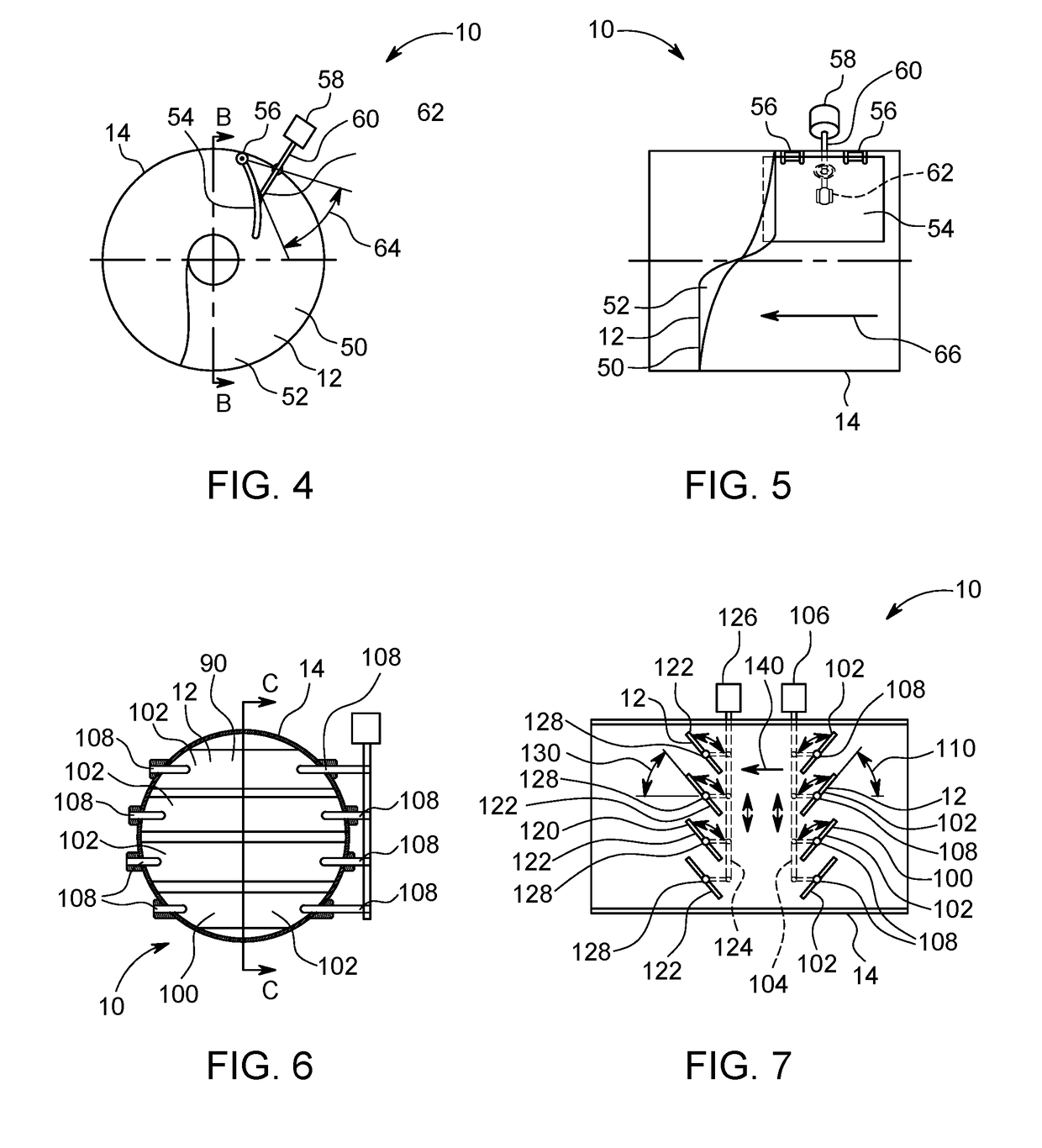Variable geometry def mixer design
a mixer design and variable geometry technology, applied in the field of mixers, can solve the problems of increased turbulence, increased turbulence, and mixer design based on low exhaust flow may not be the optimal mixer design for high exhaust flow conditions
- Summary
- Abstract
- Description
- Claims
- Application Information
AI Technical Summary
Benefits of technology
Problems solved by technology
Method used
Image
Examples
Embodiment Construction
[0026]Referring now to FIGS. 1 and 2, a top view and a sectional view taken along line A-A, respectively, of an embodiment of a Variable Geometry DEF Mixer is shown. A DEF mixer 10 includes a mixing pipe 14 having within it a mixing device 12, which, in the embodiment shown in FIGS. 1 and 2, is a multiple blade mixer 20. Movable mixer blades 22 are connected to the mixing pipe 14 using mixer blade pivot points 24, which may be provided as vertical hinges as shown. A blade actuator 26 is connected to one of the movable mixer blades 22 by way of a blade actuator linkage 28 that passes through the wall of the mixing pipe 14. Angular movement of the movable mixer blades 22 is actuated and coordinated using an inter-blade linkage 30. Each of the links of the blade actuator linkage 28 and of the inter-blade linkage 30 is connected to the movable mixer blades 22 using a blade linkage connection 32.
[0027]The DEF mixer 10 uses the blade actuator 26 to increase or decrease the blade angle 34 ...
PUM
 Login to View More
Login to View More Abstract
Description
Claims
Application Information
 Login to View More
Login to View More - R&D
- Intellectual Property
- Life Sciences
- Materials
- Tech Scout
- Unparalleled Data Quality
- Higher Quality Content
- 60% Fewer Hallucinations
Browse by: Latest US Patents, China's latest patents, Technical Efficacy Thesaurus, Application Domain, Technology Topic, Popular Technical Reports.
© 2025 PatSnap. All rights reserved.Legal|Privacy policy|Modern Slavery Act Transparency Statement|Sitemap|About US| Contact US: help@patsnap.com



